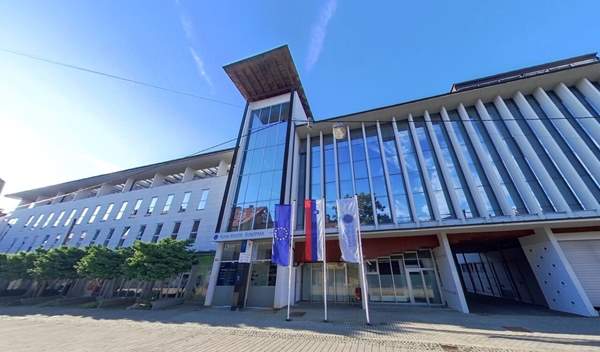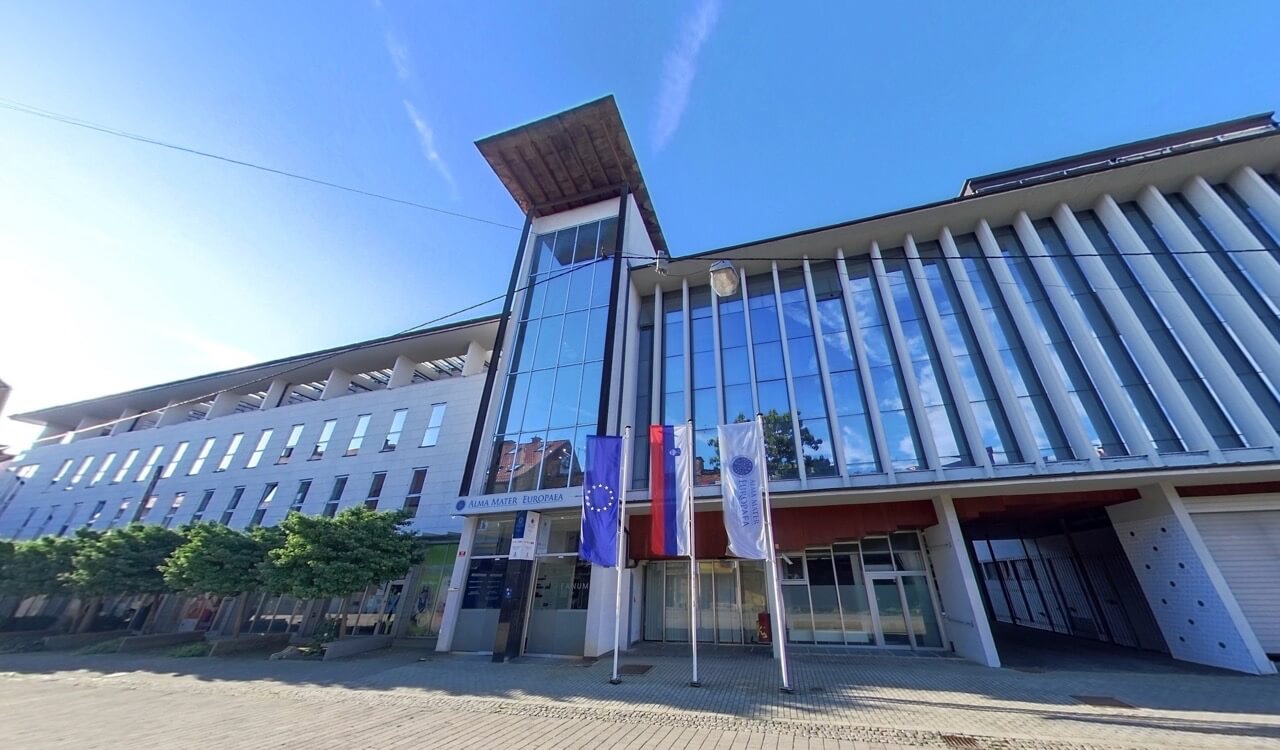
Preparations for the Alma Mater Europaea Promotion

On March 21, 2024, the Council of the Slovenian Quality Assurance Agency for Higher Education (NAKVIS) confirmed the accreditation of Alma Mater Europaea University. This significant achievement will be celebrated with a ceremonial promotion on Tuesday, October 22, 2024, at 1:00 PM in the Kazina Hall of the Slovenian National Theatre in Maribor.
Promotion of Honorary Doctors of Science
During the ceremony, Alma Mater Europaea University will award two honorary doctorates to exceptional individuals who have significantly contributed to advancing science and humanism.
One honorary doctorate will be awarded to academician Professor Dr. Vinko Dolenc, a member of the Slovenian Academy of Sciences and Arts, the European Academy of Sciences and Arts, and since 1991, an ambassador of the Republic of Slovenia in science. Prof. Dr. Dolenc has also received numerous international awards. Alma Mater Europaea University will bestow this honorary doctorate upon him for his outstanding achievements in neuroscience and neurosurgery.
Another honorary doctorate will be awarded to academician Garry Jacobs, president of the World Academy of Art and Science (WAAS). Alma Mater Europaea University will recognize him for his exceptional work promoting peace, equality, humanism, and development.
Professor Dr. Vinko V. Dolenc graduated in medicine in Ljubljana in 1966 and completed his specialization in neurosurgery at the Neurosurgery Clinic of the University Medical Centre Ljubljana in 1974. He defended his doctorate in 1977 and was appointed head of the Neurosurgery Clinic at UMC Ljubljana in 1985. On April 23, 1987, he was elected a corresponding member of the Slovenian Academy of Sciences and Arts (SAZU), and on May 27, 1993, he became a full member.
In the early years of his neurosurgery specialization, Prof. Dr. Dolenc introduced microsurgical techniques to neurosurgical operations in the former Yugoslavia. He was among the first in the world to operate on ruptured aneurysms in the acute phase. In the early 1990s, he began groundbreaking neuroanatomical research in the parasellar region, operating on vascular malformations and tumors in the cavernous sinus.
He has authored five books on microsurgery and microanatomy of the cranial base, published with Springer Verlag (Vienna—New York), one of which has been translated into Chinese. He has published over 200 scientific articles and more than 100 commentaries in neurosurgical literature. Five of his articles are considered pioneering works in microneurosurgery. His book Microsurgical Anatomy and Surgery of the Central Skull Base is a fundamental textbook for neurosurgeons specializing in cranial base surgery.
Since 1986, Prof. Dr. Dolenc has been invited to 140 neurosurgery clinics and departments worldwide to demonstrate surgical procedures related to the cranial base. He has also taught undergraduate and postgraduate courses at the Faculty of Medicine in Ljubljana and led a neuroanatomy laboratory where many neurosurgeons worldwide have trained. He founded the International Institute for Neurosurgery and Neuroscience (IINN).
Garry Jacobs is the president and CEO of the World Academy of Art and Science (WAAS), a position he has held since 1995. He is also the executive chairman of the global HS4A - Human Security for All campaign, an initiative led by WAAS in collaboration with the UN Trust Fund for Human Security. Additionally, he serves as chairman of the board and CEO of the World University Consortium (WUC). He is a former president and director of social research at The Mother’s Service Society in Pondicherry, India, and editor of Cadmus Journal, focusing on economics, education, governance, and security. He is also a member of the Club of Rome.
Jacobs is an American social scientist and management consultant specializing in new paradigms and strategies in business, economics, education, global governance, human rights, and international security. Since the 1970s, he has researched organizational growth, development, and evolution, applying the spiritual teachings of Sri Aurobindo. He has authored two books on value-based business growth, a novel on spiritual approaches to development, and over 100 articles on applying principles of consciousness to individual, business, national, and international development in economics, finance, education, human rights, governance, and peace and security. In 1989, he co-founded the International Commission on Peace and Food, and in 1994, he co-authored the UN report Uncommon Opportunities: An Agenda for Peace and Equitable Development.
Meeting of the Leaderships of the World Academy of Art and Science and the European Academy of Sciences and Arts in Maribor
Rector Professor Dr. Ludvik Toplak emphasized: "The experts' discussion will focus on the remarkable potential of artificial intelligence for peace and human security. In a world of increasing crises that defy traditional solutions, the vision of a new global peace initiative brings together institutions to shape measures to reduce tensions through a global peace offensive based on various forms of diplomacy. The key question is how to harness artificial intelligence for peace and development while preventing its misuse for war and disintegration."
The vision of this global peace initiative is to unite research, educational, and civil society institutions to develop practical measures for managing rising tensions. "Our global peace offensive is based on cultural, scientific, economic, educational, and environmental diplomacy to foster constructive dialogue and gradually overcome conflicts," added Dr. Toplak.
Efforts will focus on building trust, impartial assessment of the needs and demands of all parties involved, and the active engagement of stakeholders. Promoting international cultural exchanges and cooperation will lay a foundation for constructive dialogue and solutions in the most challenging conflict environments.
"Through educational strategies such as seminars, workshops, and public forums, we will encourage mutual steps toward sustainable peace. Reliable research and analysis, with broad participation, will be crucial. In the future, we plan to expand the use of artificial intelligence regionally and thematically. The meeting of the leaderships of both academies calls upon stakeholders, particularly from science, art, and education, to direct their efforts toward preserving and advancing the peace mission. Special attention is directed toward financial, political, and media power centers, urging them to responsibly use artificial intelligence in peace and development, emphasizing shared and individual responsibility. Everyone is accountable within their capacity," concluded Rector Dr. Toplak.
